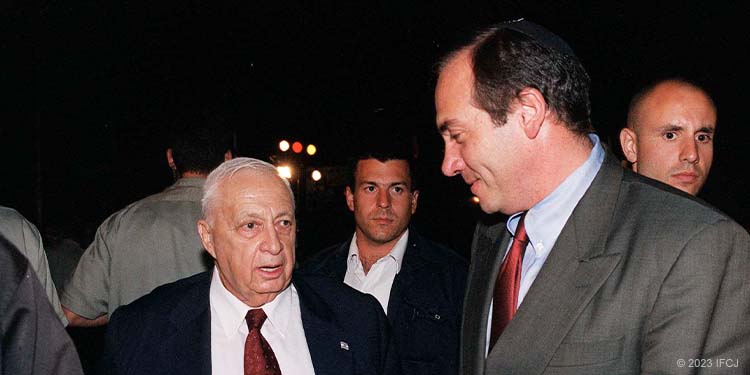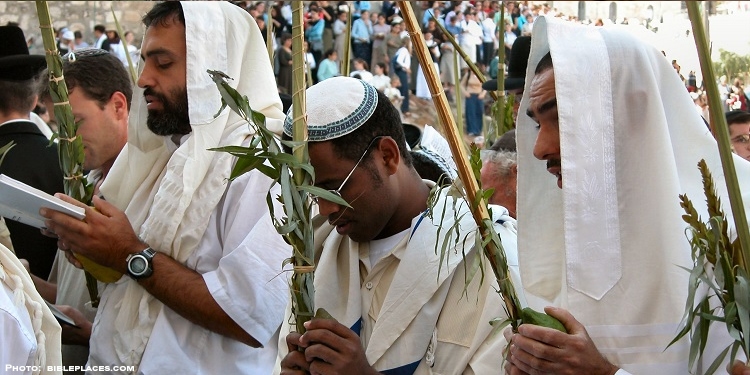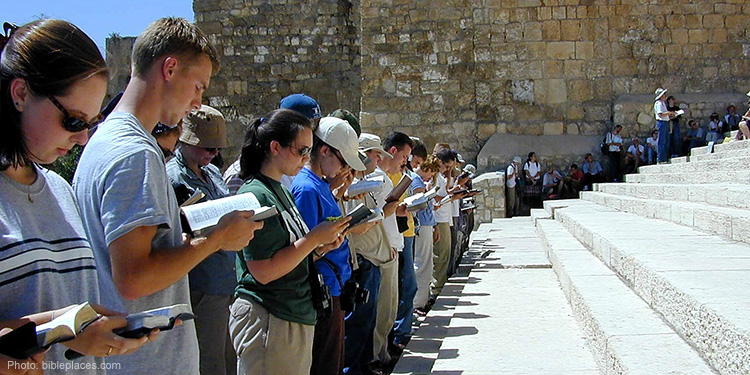What Is Aliyah?

The Meaning of Aliyah
Aliyah is the Hebrew word used to describe immigration to Israel—bringing Jews from the “four corners of the earth” to their biblical homeland is the very backbone of the Jewish state. It’s the return of Jews to the land of Israel from the diaspora (Jewish communities outside of Israel). In Hebrew, aliyah means “to ascend” or “to go up.” This word was originally used to describe the pilgrimage that Jews made three times a year to the city of Jerusalem for the biblically mandated holy days of Passover, Shavuot (Pentecost), and Sukkot (Feast of the Tabernacles). Since Jerusalem is located on top of Mount Zion, the pilgrims literally ascended to the Holy Temple.
The Origins of Aliyah
The origins of aliyah can be traced back to ancient times, with a deep historical and religious significance for the Jewish people.
The concept of aliyah originates from the biblical narrative and the promise of the land of Israel to the Jewish people. In the Hebrew Bible, the Book of Genesis recounts the story of Abraham, who was commanded by God to leave his homeland and go to the land of Canaan, which is now modern-day Israel. This is considered an early form of aliyah, as Abraham’s journey represented the first step toward the establishment of a Jewish presence in the land.
The Importance of Aliyah

Rabbi Yechiel Eckstein, founder of The Fellowship, used to tell a story about the late Ariel Sharon, his friend and Israel’s 11th Prime Minister. When the Rabbi asked Sharon, “What are the three most important things we at The Fellowship can do for Israel?” the Prime Minister’s response was simple and succinct: “Aliyah, aliyah, aliyah.”
As PM Sharon said, helping bring Jews from around the world to Israel is the most important task we can take on—not just in saving the lives of individuals living in poverty and oppression, but in strengthening the Jewish state as a whole. Many Israeli leaders have recognized this fact. In 2016, during a ceremony commemorating Israel’s first Aliyah Day holiday, Prime Minister Benjamin Netanyahu remarked, “The democratic values of the Jewish state, our military might, our economic strength, our adherence to progress, our scientific and technological innovations, draw hundreds of new immigrants, each one of whom contributes to the bolstering of those values and strengths.”
Each Jewish person who makes the monumental decision to come to Israel brings their talents and professional skills to work for the betterment of the Jewish state. At The Fellowship, this is something we have heard repeatedly: when immigrants come home to Israel, they are put in an environment where they are able to develop their unique talents and practice them in service of their new country, and the entire Jewish state is better—and stronger—because of it.
How Many People Make Aliyah?
Thousands of Jewish people move to Israel every year. Turns out, these numbers have been increasing year over year due to the rising anti-Semitism and religious persecution sweeping the world. According to Jewish News Syndicate, approximately 70,000 people from 95 countries made aliyah in 2022. This was the largest wave of new olim in 23 years and a major jump compared to the 28,000 immigrants in 2021. Some of the countries Jews are moving from include Ukraine, Russia, France, Ethiopia, and South Africa. The spike in 2022 could have been the result of the devastating war in Ukraine that started on February 24, 2022. In response to this crisis, The Fellowship has been on the ground working to support the Jewish communities in Ukraine and have helped many children, families, and elderly Jewish people—many of them Holocaust survivors—make their return to the Holy Land.
Yael Tells Her Aliyah Story
Fellowship President and CEO Yael Eckstein tells her story of making aliyah (immigrating to Israel) with her husband. At first, though, she was opposed to leaving everything that was familiar, all that she had known growing up in America. But when God changed her mind, there was no going back. Since then, Yael and her husband have made their home in the Holy Land, where they have raised their four children, all of whom were born in Israel.
Why Jews Make Aliyah
These olim are also given the chance—many for the first time in their lives—to live freely as Jews. For Jews who have had to keep their Jewish identity secret for their entire lives—or who have lost touch with their Jewish identity through generations of anti-Semitic oppression and violence—the ability to reclaim that identity, and live and worship openly in a free and democratic Jewish state, is truly a dream come true.
Aliyah also sends a powerful message to Israel’s enemies, many of whom still do not accept the reality of a Jewish state in their midst. It is a message that, sadly, is still necessary to restate: Israel isn’t going anywhere. Jews recognize the founding of the Jewish state for the miracle that it is and, having been denied their own sovereign country for so long, they are committed to keeping and protecting this one.
History of Aliyah: A Prophetic Return
When the state of Israel was formed in 1948, Jews from all over the world—Holocaust survivors in Europe, refugees expelled from Arab lands where they had been living for generations, poor Jews from Africa and South America—eagerly took the opportunity to return to their biblical homeland. By 1955, the Jewish population of the Holy Land had more than doubled, to over 1.5 million.
Following the call of David Ben-Gurion, Israel’s first Prime Minister, to “make the desert bloom,” the Jews made something of their land. Israeli farmers turned barren desert into fertile land for crops. Industry boomed, and the new nation was greatly productive.
But aliyah did not stop with this first wave of settlers. Over the years, Jewish people returned to the land of Israel to escape poverty, to flee anti-Semitism… and simply to fulfill this dream of returning to the Holy Land that had so long been denied to them.
Major Waves of Aliyah
Throughout history, Jews have faced various periods of dispersion, persecution, and even genocide, leading to multiple waves of aliyah. Large waves of immigration to Israel started around the 1880s, almost 70 years prior to the establishment of Israel in 1948. Each wave brought thousands of Jews home to the Promised Land and radically changed the population and modernization of Israel. There have been five major waves of aliyah since the 1880s.
The First Aliyah
In 1881, Russian Czar Alexander II was assassinated, which led to a rise in anti-Semitism and pogroms across Russia. Russian Jews were desperate to escape the violent attacks and began immigrating to Israel. Approximately 35,000 Russian Jews made aliyah between the years of 1882 and 1903.
This wave was motivated by Zionist ideals, seeking to re-establish a Jewish homeland. Jewish immigrants from Eastern Europe and Russia settled in rural agricultural communities, known as “Moshavot” and “Kibbutzim,” and played a significant role in the early stages of building the infrastructure of what would become the State of Israel. These farming settlements eventually transformed into the existing towns of Zichron Yaakov, Rosh Pina, and Rishon Letzion.
The Second Aliyah
The Second Aliyah brought approximately 40,000 olim from Russia and Poland to the Holy Land. This wave began due to continued violence against Jewish people and the rise of socialist and labor movements. This major influx of immigrants took place from 1904 to 1914 and were mostly single young people seeking the national redemption of the Jewish people in Israel. Many of these Jewish immigrants settled in urban areas and contributed to the development of Tel Aviv.
The Third Aliyah
The Third Aliyah was a continuation of the Second Aliyah and occurred during the 1920s, following the end of World War I and the beginning of the British Mandate over Palestine. This wave of aliyah consisted of Jews fleeing persecution and economic difficulties in Eastern Europe. About 35,000 Jews arrived, most of them from Russia and Poland, with a small number also coming from Lithuania and Romania. They made significant contributions to various sectors, including education, healthcare, and industry, further shaping the emerging Jewish society.
The Fourth Aliyah
The fourth major wave of aliyah brought more than 67,000 immigrants from Poland, Russia, Romania, and Lithuania, as well as a few other groups from Yemen and Iraq. Most of them consisted of middle-class families escaping anti-Semitism. The Fourth Aliyah took place between the years of 1924 to 1928 and led to rapid development in the major cities in Israel.
The Fifth Aliyah
In 1929, an economic revival was on the rise which led to the beginning of the Fifth Aliyah. This wave of immigration continued with World War II and brought thousands of Jewish people from all parts of Europe. Hitler’s rise to power was the major driver for many immigrants, leading to approximately 250,000 olim arriving in Israel by 1939.
Aliyah continued after the establishment of the State of Israel in 1948, with subsequent waves of immigrants coming from different parts of the world. Notable examples include the mass immigration of Jews from North African and Middle Eastern countries in the 1950s and 1960s, known as the Mizrahi Aliyah, as well as the immigration of Ethiopian Jews in the 1980s and 1990s.
On Wings of Eagles

Photo credit: IFCJ 2020
It was the plight of one of those groups of Jewish people that led to the formation of The Fellowship’s flagship On Wings of Eagles program. When the Soviet Union collapsed in 1990, the door to freedom opened for Soviet Jews, who under Communist rule had been greatly oppressed and denied the right to come to their biblical homeland. On Wings of Eagles provided aliyah Flights to these people who had suffered so greatly and for so long. Christians eagerly took part in this initiative, knowing that they were being used by God to fulfill the biblical prophecy: “See, I will beckon to the nations, I will lift up my banner to the peoples; they will bring your sons in their arms and carry your daughters on their hips” (Isaiah 49:22).
Over the years, The Fellowship’s aliyah efforts have grown and expanded to help suffering Jews come to Israel from Ethiopia, Arab lands, Europe, South America, and elsewhere. And when these Jews arrive in the Holy Land, they are also provided with klitah (resettlement) assistance, which helps them become full, productive citizens in their new home.
The formation of the modern state of Israel and the Jews’ return to the Holy Land has truly been the fulfillment of God’s promise to “gather the exiles of Israel… from the four quarters of the earth” (Isaiah 11:12). It has been our blessing and our privilege to be God’s instrument in this work—to be part of helping His people return home.
Aliyah in the Bible: A Spiritual Journey
The word aliyah was initially used to describe the pilgrimage all Jews made three times a year in biblical times to Jerusalem for the festivals of Passover, Pentecost, and Sukkot.

In fact, Psalms 120—134 are often called “pilgrim psalms” or “songs of ascent.” These psalms were typically sung by those who journeyed to the Temple in Jerusalem for the annual festivals. Each psalm is considered a step along the journey. It begins with Psalm 120 as the pilgrim sets out from a distant land, surrounded by enemies: “Woe to me that I dwell in Meshek, that I live among the tents of Kedar! Too long have I lived among those who hate peace” (vv.5–6).
The journey continues in Psalm 121 as the psalmist expresses the hope and trust he has in God’s protection day and night. Read aloud these beautiful words of God’s ever-present watchfulness: “indeed, he who watches over Israel will neither slumber nor sleep” (v.4). And in Psalm 122, the pilgrim acknowledges his entrance into Jerusalem itself, “Our feet are standing in your gates, Jerusalem” (v. 2). In the remaining psalms, the psalmist moves toward the Temple itself—the very spiritual center of Israel.

When Jews return to Israel, they are returning to their spiritual center, to a land promised to them since the time of Abraham. They are returning home. God has been faithful to His promises to His people throughout time and throughout history. And He remains faithful today as Jews continue to make aliyah and return home.
Find out how much you know about Aliyah.
See how many words you can find in our Fellowship word search.
